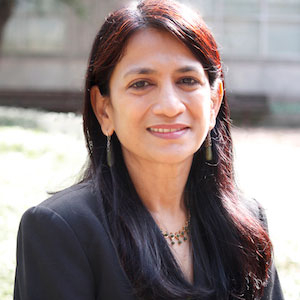Rupa Iyer, University of Houston College of Technology biotechnology professor, received the Association of Public and Land-Grant Universities (APLU) Council on Research (CoR) Research Leader Fellowship Program, which started in July. The highly competitive fellowship program enables a distinctive cohort of eight individuals to develop the critical knowledge and skills essential to research support and competitiveness. In addition to peer mentoring and networking, the CoR Research Leader Fellowship Program enables research leaders to increase the depth of their knowledge and allows Fellows to develop expertise and skills in multiple areas relevant to leading a research agenda within an academic institution.
Dr. Iyer is the founding director of the biotechnology program. She was the associate dean of research and graduate studies before beginning a rotation as a Program Director at the National Science Foundation (NSF) in September 2017. As a CoR Research Leader Fellow, Iyer’s project will focus on multidisciplinary convergence research that leverages public private partnerships to stimulate economic development and enhance research productivity. “I am excited about this opportunity in the CoR Fellows program. It is a great way to integrate knowledge from my prior experiences and expertise. In particular, the 18-month fellowship will allow me to draw on the experiences of the Nation’s strongest public university research leaders to provide insight and advice relevant to enhancing the research enterprise of academic institutions,” Iyer said.
“We’re thrilled to welcome our new cohort of fellows,” said APLU executive vice president Howard Gobstein, who leads the association’s research policy and STEM education efforts. “We applaud this year’s fellows for their remarkable achievements to date. The CoR Fellows program is designed to help them take their leadership to the next level. The fellowships are a critically important CoR effort, helping to cultivate the next generation of public research university leaders and build institutional capacity.”
